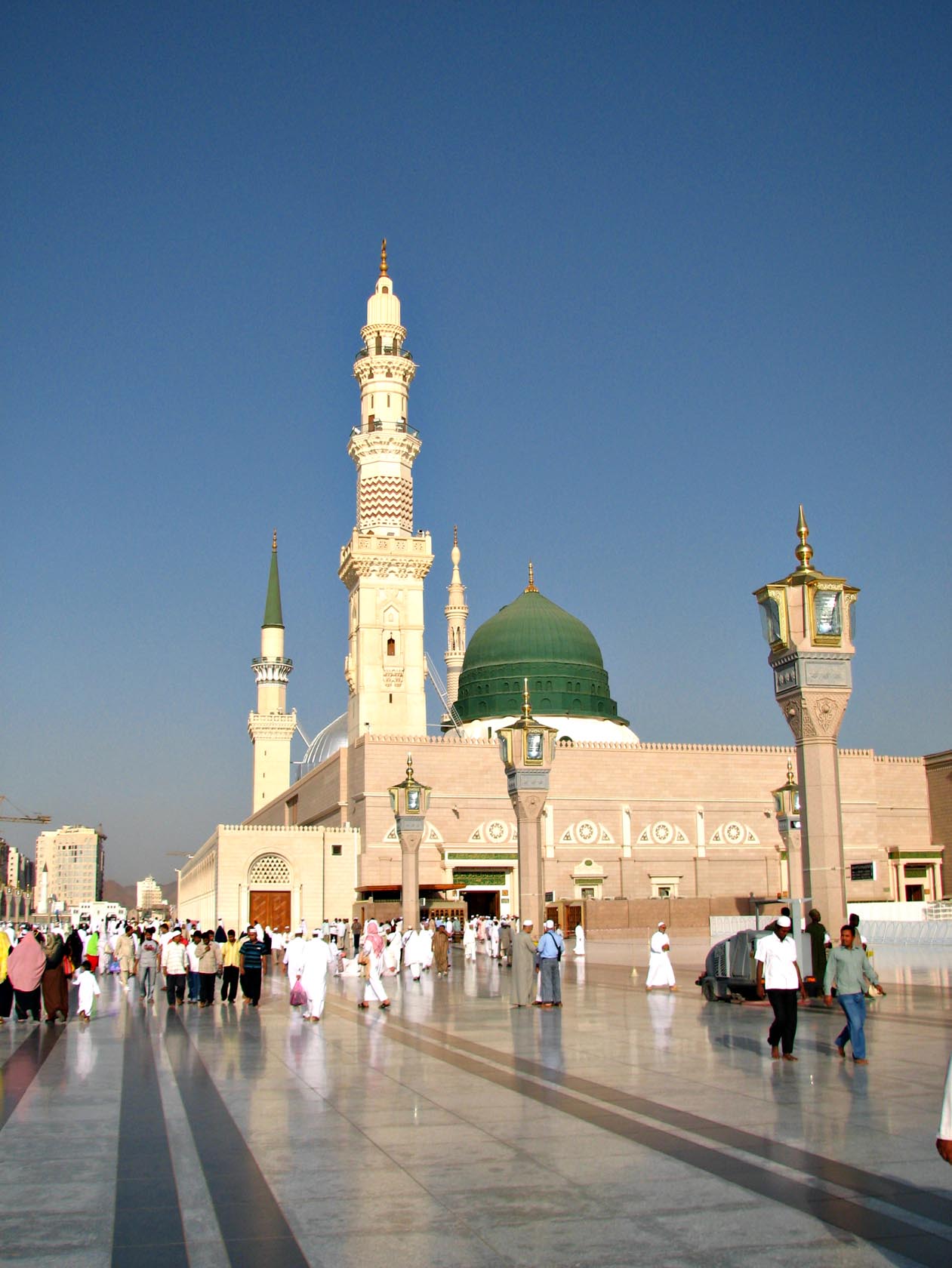The 'Umrah: Rulings and Rites

1- The definition of 'umrah
'Umrah means visiting the Sacred House of God while in ihram. Its actions include tawaf, sa'y, and the rest of the pillars and requisites of 'umrah.
2- The ruling for 'umrah
There is a scholarly contention over the ruling for 'umrah. Some have maintained that it is obligatory while others held that it is merely recommended. Still, others maintained a difference in the ruling for residents of Mecca and non-residents i.e. it is only obligatory upon non-Meccans. Shafi'i and Hanbali scholars have maintained that 'umrah is obligatory upon Meccans and non-Meccans alike, substantiating their opinion with the words of God the Almighty,
And complete the hajj and 'umrah in the service of God, but if you are prevented (from completing it, send an offering for sacrifice such as you may find. [Al-Baqarah, 196]
The Divine command in the above verse implicates their performance similar to the command in the verse,
Then complete your fast till the night appears. [Al-Baqarah, 187]
i.e. perform fasting. The scholars who do not deem 'umrah obligatory, took the apparent meaning of the words of God cited above and maintained that the obligation concerns completing the rites of hajj and 'umrah for someone who has already begun them. Consequently, it is unlawful for such a person to refrain from completing these rites after having proceeded to undertake them. Scholars who have maintained that 'umrah is obligatory, cite that a person who intends to make 'umrah must be:
- Sane.
- A Muslim.
- Mature.
- Free.
- Financially and physically capable of performing it. This is a condition for the obligatoriness of 'umrah and not for its validity. Consequently, the 'umrah of a person who does not meet this last condition is valid and he has fulfilled its obligation.
3-The merits of 'umrah
The merits of 'umrah are numerous; they include good practices and significant results. Among the greatest merits of 'umrah are having one's sins forgiven and one's du'a` supplication accepted. This has been reported in many hadiths including the one narrated by Abu Huraira (may God be pleased with him) who narrated that the Prophet said, "One 'umrah to another expatiates for the sins committed in between and the reward for an accepted hajj is nothing short of Paradise."
4- Obligatory features of 'umrah
The 'umrah consists of obligatory, required and recommended actions. The obligatory actions are five and include:
i-The intention (entering ihram for 'umrah)
According to the majority of scholars, entering ihram for 'umrah comprises of making the intention and, according to Hanafi scholars, making the intention in addition to making dhikr or khusussiya. Dhikr means making talbiyah or anything that includes glorification of God the Almighty, while khusussiya refers to any act equivalent to talbiyah such as offering a hady or taqlid el-budn (tying anything around a camel's neck by way of showing that it is intended for slaughter. This also serves to prevent anyone from harming it, out of reverence for its status as a sacrificial animal).
ii- Tawaf
According to the majority of scholars, the obligatory number of rounds of tawaf is seven, while according to Hanafi scholars the obligatory number is four and the remaining three are required.
It is a condition that prior to making tawaf, a person enters ihram for 'umrah. It is likewise a condition for a person on 'umrah to observe all the general conditions of tawaf such as making the intention, circumambulating the Ka’bah which includes passing outside the Hijr i.e. al-Hatim, and tayamun (going counterclockwise), purification from minor and major impurities, being free from impure substances on his body and covering his nakedness. According to the majority of scholars, all of the above are conditions for the validity of tawaf. Hanafi scholars have maintained that passing outside the Hijr, tayamun, purification and covering one's nakedness are required although tawaf is still valid without them and their omittance requires slaughtering in expiation. Maliki and Hanbali scholars have stipulated that the rounds of tawaf be sequential but this is merely recommended by Hanafi and Shaif'i scholars.
iii- Sa'y
Sa'y is an obligatory element of 'umrah in the Maliki and Shafi'i schools of jurisprudence and in one report from Imam Ahmed. It is a requisite in the Hanafi school while its requisiteness is the dominant opinion of the Hanbali school.
According to the opinion of the majority of scholars, sa'y includes going between as-Safa and al-Marwa seven times while Hanafi scholars have maintained that the obligatory number is four and the rest are required.
iv- Shaving or shortening the hair
This is a requirement in the Hanafi, Maliki, and Hanbali schools while it is an obligatory element according to the dominant opinion of the Shafi'i school.
In Maliki and Hanbali schools, it is required to either shave all the hair or shorten it; in the Hanafi school it is required to shave at least a quarter of the head; in the Shafi'i school, it is obligatory to remove at least three hairs.
It is preferable for a man to shave his head when performing 'umrah except for a mutamatti' who will need to shorten it for hajj. It is recommended for women to only shorten their hair and it is disliked for them to shave it since this is considered mutilation. It has also been said that it is prohibited upon women to shave their heads.
v- Order of precedence
This is not a separate element but includes the manner of performing the above four elements of 'umrah. However, it is considered obligatory because neglecting the order of precedence is tantamount to neglecting any of the pillars of 'umrah.
The required element of 'umrah is entering ihram from the proper miqat site while its sunnahs are the same as those of hajj and include: ihram, tawaf, sa'y and shaving the hair.
 Arabic
Arabic French
French Deutsch
Deutsch Urdu
Urdu Pashto
Pashto Swahili
Swahili Hausa
Hausa
